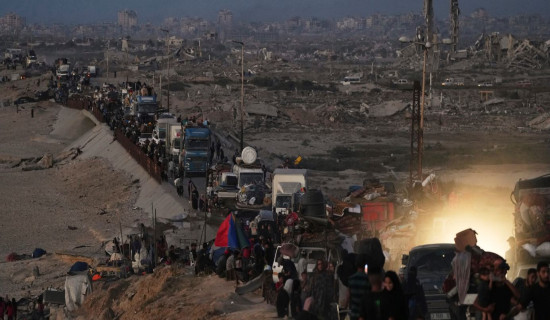- Thursday, 18 September 2025
Succour To Private Sector
It's been over a week since the nation saw the widespread destruction of lives and properties. Many still wonder why the businesses that have worked tirelessly and taken immense risks to generate tens of thousands of jobs, contributed significantly to the development of the country, and are a tax base for the government, were targeted with utmost cruelty. There can never be a justification for attacking them, nor can there be one for burning down structures that are the living pieces of history or those from where justice is served and people's rights are protected. The evildoers of these crimes must be brought to justice. At the same time, justice must be ensured for the families of innocents who perished or were left injured in peaceful protests.
Equally important is pursuing the reconstruction of gutted businesses, for the lives and livelihoods of countless people are inextricably tied to them. In a good piece of news, the newly appointed Finance Minister Rameshore Khanal has pledged to work to that end. The Ministry of Finance's recent decision to extend the deadline for tax submission for the private sector companies by a month, fulfilling the sector's immediate demand, is a step in the right direction. At a meeting with the representatives from the private sector organisations, Minister Khanal assured the entrepreneurs that economic reform efforts would be undertaken with their support.
He has also pledged that the government would take the necessary steps to explore what tax concessions could be offered. The news that the government has already established a fund for reconstruction comes as a solace to the deeply wounded sector, and to a large extent, the country. The government has also hinted that the Corporate Social Responsibility (CSR) funds will be mobilised for the reconstruction of damaged businesses and structures.
The Federation of Nepalese Chambers of Commerce and Industry (FNCCI) has sought a dialogue mechanism between the private sector and the government for economic revival and good governance. It has also called for loan restructuring and rescheduling facilities for businesses affected, as well as tax exemptions, including income tax, to attract investment. Also in the demands are reducing the Value Added Tax (VAT) rate or applying a lower rate on essential goods, and announcing special packages to attract tourists. As articulated by the umbrella organisation for businesses in Nepal, tax exceptions, production-based relief, and concessional loans seem to be indispensable for businesses to bounce back.
In a remarkable display of indomitable spirit, the entrepreneurs, despite having their businesses gutted, have vowed to rise from the ashes, to continue creating jobs and contributing to revenue. We wholeheartedly salute this spirit! There's no doubt that they will build back better with unquestionable resilience, but they cannot do it alone. They are looking to the government for help. It should not let them down. Given the monumental scale of the destruction, the reconstruction should be on a war footing to ensure that the affected areas are rebuilt as quickly as possible. If lowering taxes can help channel money into this effort, the government should go ahead with it.
The longer the delay in the reconstruction, the costlier it becomes, and the more painful for the individuals violently pushed out of their jobs. Tackling this calls for prompt actions and streamlined bureaucracy. In nearly every country, the private sector is the engine of its economy, creating employment and innovation. And Nepal is not an exception. We cannot afford to ignore its demands.














